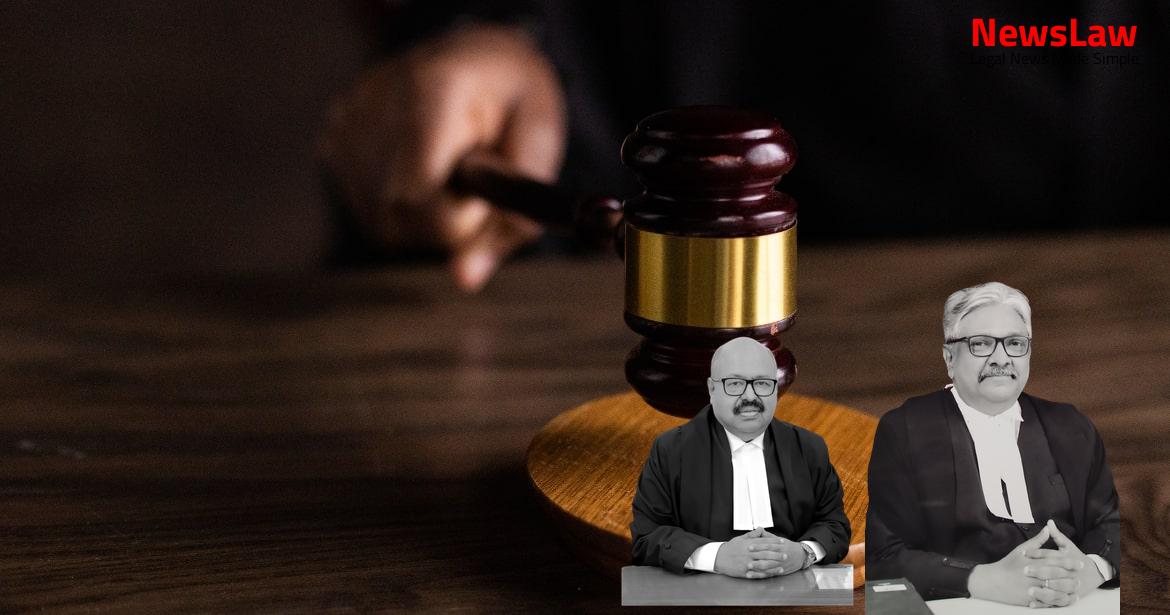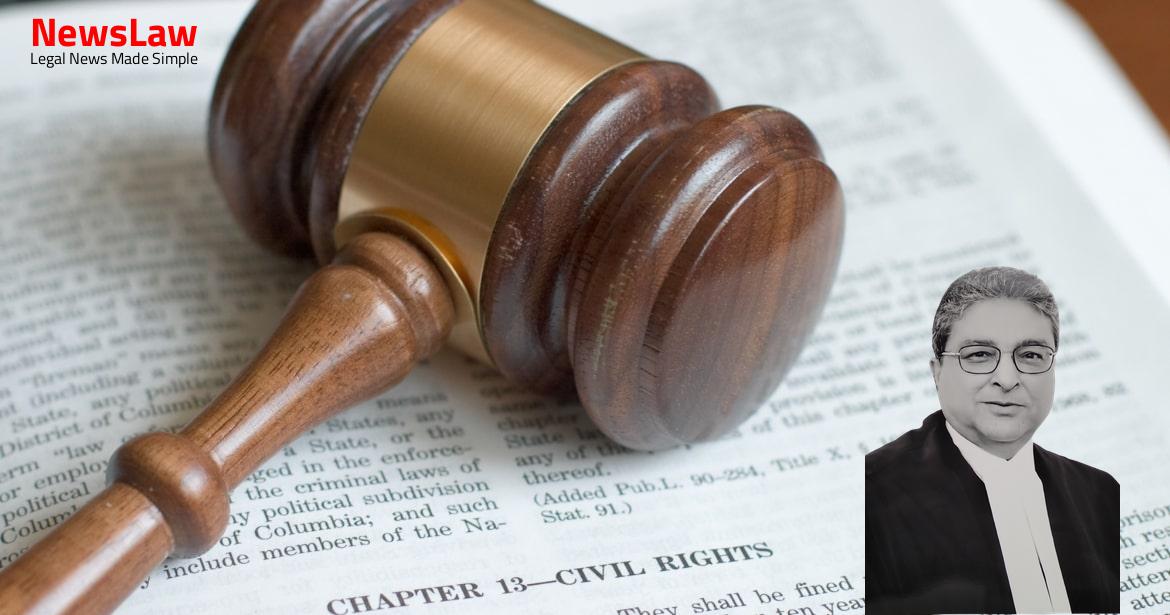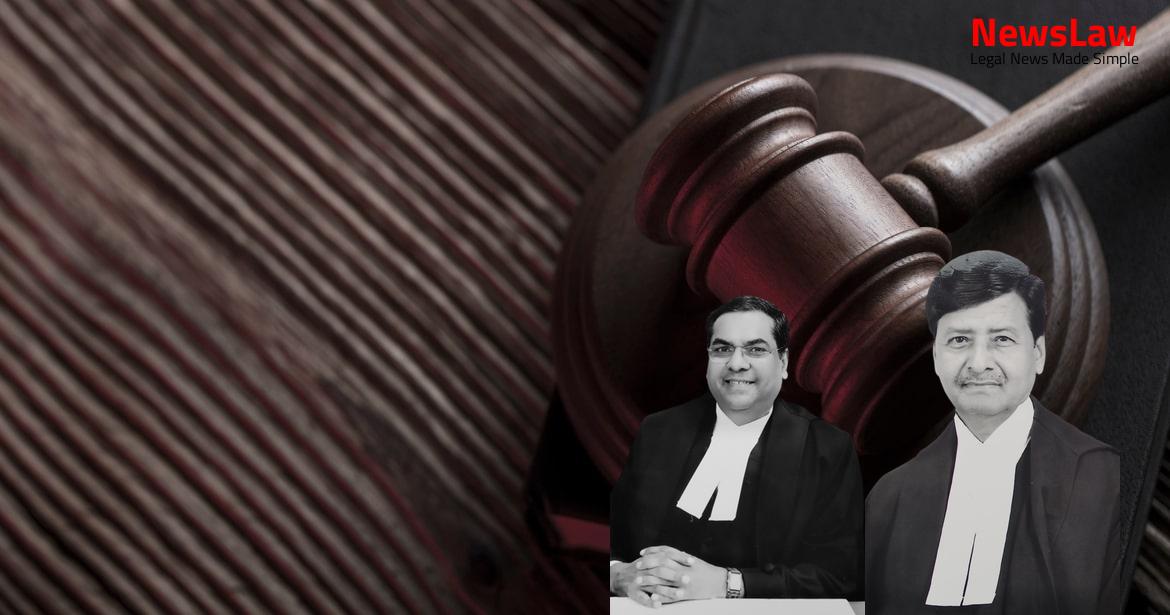Delve into a comprehensive legal analysis of a case involving back wages in an employee caste verification dispute. The court’s meticulous evaluation of the circumstances highlights the nuances of determining fair compensation in such cases. Stay informed with the latest insights on employment law and judicial considerations.
Facts
- The appellant challenges the Division Bench’s judgment affirming the learned Single Judge’s view.
- Writ appeals were filed which led to the impugned order affirming the judgment of the learned Single Judge.
- A representation dated 28.04.2014 did not result in a favorable outcome.
- The appellant, initially appointed as Staff Nurse (Group-C) with the respondent, filed writ petitions that resulted in the current appeals.
- There was an inquiry against the appellant on the charge of falsely claiming to belong to the Scheduled Caste community to secure employment.
- The original appellant passed away, and the legal representatives now pursue the appeal.
- Verification confirmed that the appellant indeed belonged to the Scheduled Caste in question.
- After a representation was given, on 12.04.2014, the appellant was reinstated without consequential benefits.
- The Tahasildar verified the caste certificate and found that the appellant did not belong to the Scheduled Caste ‘Adi Karnataka’.
- Appellant challenged the Tahasildar’s order before the High Court, which upheld the decision.
- Based on the High Court’s judgment, the Disciplinary Authority dismissed the appellant from service.
- The Division Bench allowed the appeal, stating that the power to rule on caste status did not lie with the Tahasildar but with the Bangalore District Caste Verification Committee.
- Verification of the caste certificate was directed to be made by the Competent Authority.
Also Read: Interpretation of Suspension Rules in Employment Case
Arguments
- Appellant was kept out of employment without any misconduct on her part.
- The impugned orders indicate that the Court recognized that neither the appellant nor the respondents were at fault.
- The denial of full back wages is deemed unsustainable, given that the appellant was not at fault.
- The appellant did not specifically plead in the writ petition that she was not gainfully employed during the period in question.
- The appellant belonged to the caste in question, and hence, denial of full back wages is unjustified.
- The argument raised in the review petition was rightly rejected.
- Courts have recognized that reinstatement of an employee does not automatically entitle them to full back wages.
- In this case, two Courts found that the respondents acted based on the report of the Tahasildar, who had opined that the appellant was not a member of the Scheduled Caste.
- The respondents were justified in relying on the Tahasildar’s report when the employer was not at fault.
- The appellant is entitled to partial relief based on the circumstances of the case.
- The decisions made by the Courts will determine the outcome of the claim for back wages.
Also Read: Legal Analysis of Assignment and Ratification in Property Law
Analysis
- Appellant was cleared by competent authority and vindicated in caste identification issue.
- Appellant was blameless in the matter and the review attempt was futile.
- No work no pay principle not absolute, exceptions exist especially when the administration wrongly denied due benefits.
- Courts have discretion in granting full back wages or 50% back wages based on nature of delinquency or acquittal in cases.
- In cases of successful challenges to supersession, courts may grant full benefits with retrospective effect.
- Court’s consideration of exceptions when employee does not work applies even in cases involving caste certificate verification.
- Doubt on caste certificate was resolved in favor of the respondent based on Tahasildar’s report, which was deemed incompetent due to lack of jurisdiction.
- No other misconduct charges against appellant, dismissal based solely on Tahasildar’s report.
- Employers often have advantage over employees in such cases, necessitating careful consideration by courts.
- Appellant underwent lengthy enquiry process, ultimately leading to competent authority confirming her Scheduled Caste status.
- The judgment in State of Kerala v. E.K. Bhaskaran Pillai 2007 (6) SCC 524 was relied upon by the respondents.
- The issue in the case was about monetary benefits in the context of retrospective promotion.
- The court stated that the monetary benefits with retrospective promotion vary depending on the specific circumstances of each case.
- In the decision in P.V.K. Distillery Ltd. v. Mahendra Ram 2009 (5) SC 705, the court noted that the appellant-employer remained closed for years and was declared as a sick unit.
- The court emphasized that a pragmatic view is being taken regarding back wages, considering that an industry should not be compelled to pay for unproductive periods or for times when the workman contributed little or nothing.
- It would be unjust to deny back wages to an employee due to the passage of time between termination and reinstatement order.
- The lack of infrastructure and manpower is cited as a key reason for delays in case disposal.
- In cases where the employee is not at fault for the delay in finalization of litigation, denying the employee the benefits of vindication would be unfair.
- Apart from the charge of producing a false caste certificate, there is no other charge against the employee in this case.
- Discretion is exercised by the Court based on the facts of each case.
- Consideration of alternative employment that the employee may have pursued is relevant in such circumstances.
Also Read: Second Appeal Jurisdiction in Punjab and Haryana
Decision
- Back wages increased from 50% to 75% for the appellant
- Impugned judgments modified for calculation of revised back wages
- Respondents instructed to disburse remaining amount within six weeks
- Pending applications disposed of
Case Title: GOWRAMMA C (DEAD) BY LRS. Vs. MANAGER (PERSONNEL) HINDUSTAN AERONAUTICAL LTD. (2022 INSC 226)
Case Number: C.A. No.-001575-001576 / 2022



